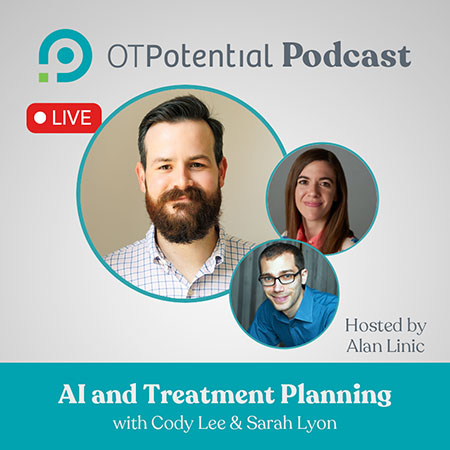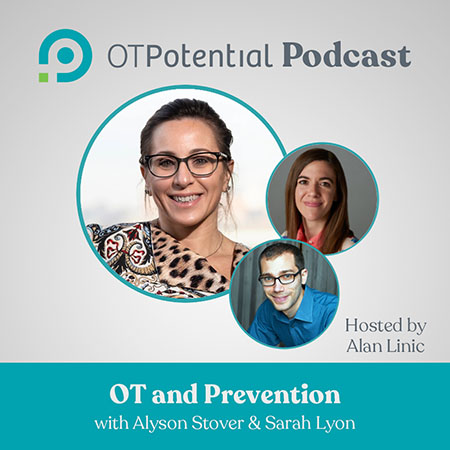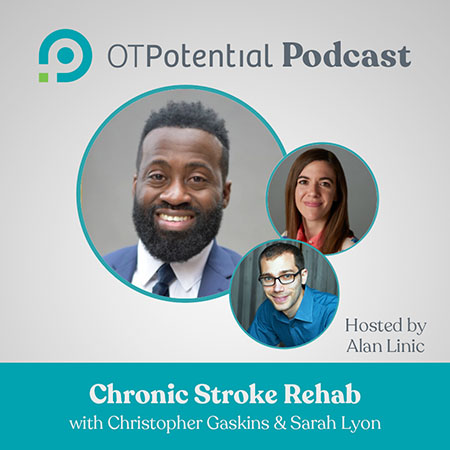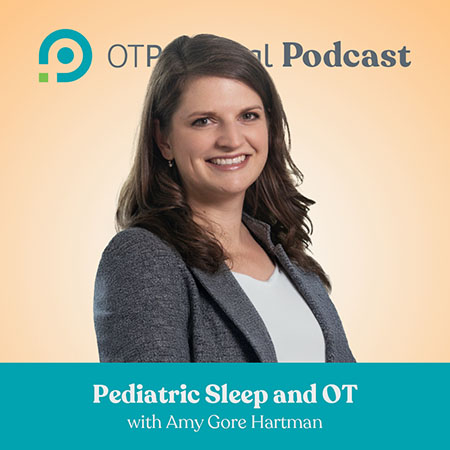Earn 1 hour of continuing education by joining OT Potential after taking this course.

Listen: Apple | Spotify | Google
The ability to affordably track brainwave activity has opened up tremendous opportunities in occupational therapy. Regardless of where we work (or the patient populations we treat), our work has the potential to be significantly informed by this technology over the next few decades.
In this one-hour course, we will look at a research study on brain-computer interface (BCI). The study will serve as a jumping-off point to explore the concepts and developments that OTs should follow in this space.
After our article review, we’ll be joined by Lauren Souders, MOT, OTR/L, CBIS, CSRS. Lauren works as Director of Clinical Operations for a BCI startup.
We’ll talk with her about what is on the market for brain-computer interface, as well as what types of BCI we can expect to see coming to market in the future. And, most importantly, we’ll discuss how occupational therapy care may be improved over the next decade with the aid of these exciting new technologies.
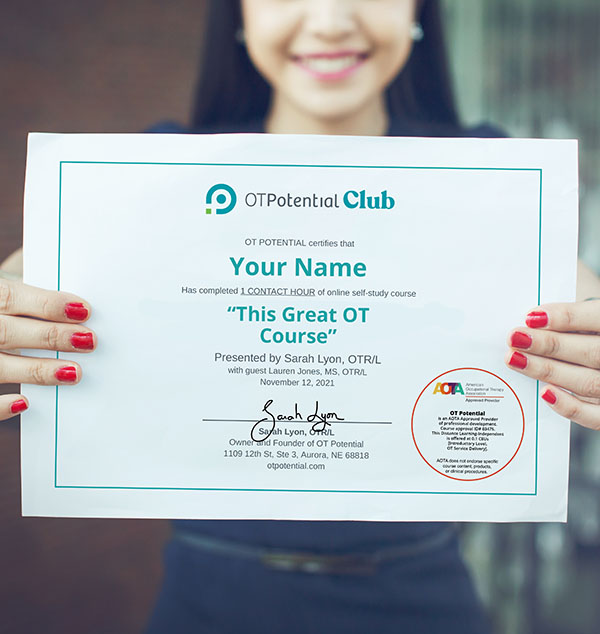
Earn 1 hour of continuing education
1. Listen to the podcast for free.
2. Sign up for the OT Potential Club.
3. Pass the quiz and download your certificate!
Primary Research Explored
When you log in, be sure to check out the OT Potential Club’s written breakdown of the following research article, then share your questions and thoughts with fellow practitioners.
Supplemental Materials
- Science Can Link Your Brain to a Computer. Are You Ready? (Bloomberg video)
- Restoring Functional Reach-to-Grasp using FES and ECoG (1 minute video!)
- American Congress of Rehabilitation Medicine
- Evidence-based Review of Stroke Rehabilitation
- Neurolutions
Secondary Research
- Contralesional Brain-Computer Interface Control of a Powered Exoskeleton for Motor Recovery in Chronic Stroke Survivors
- Brain-computer interfaces for post-stroke motor rehabilitation: a meta-analysis
Learning Objectives
- You will be able to name the basic types of brain-computer interface approaches and clinical applications that are being developed.
- You will be able to identify the concepts that drive BCI—including ones that you can start incorporating into your practice today.
Agenda
Intro (5 minutes)
Breakdown and analysis of journal article (10 minutes)
- An introduction to the concepts to you need to know about
- Mental practice
- Mirror neurons/imitative learning
- Action Observational Training (AOT)
- AOT+ brain-computer interface (BCI) with functional electrical stimulation (FES)
- Activity-dependent brain plasticity
- Why was this paper written?
- What methods did the authors use?
- What were the results?
- Authors’ conclusion and recommendations
- Takeaways for OT practitioners
Discussion on practical implications for OTs (with guest Lauren Souders) (45 minutes)
- What were your initial impressions of the article?
- Which advancements in BCI do you think are most important for OTs to be following?
- What are the different types of BCI that have the potential to be used in therapy?
- In traditional OT settings, do you think we should be changing our practice, based on what we are learning in the BCI world?
- In traditional OT settings, if a patient asked you about BCI, what would you tell them?
- In 5-10 years, how do you see BCI technologies impacting occupational therapy?
- How do you see OT needing to change to prepare for the new technologies?
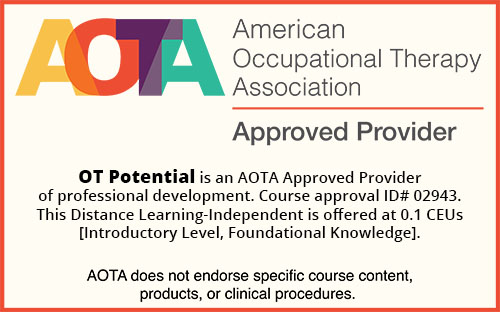
Instructional Methods/Registration/Special Needs Requests/Cancellation Policy
This course is an independent/self-study course delivered via podcast on iTunes, Spotify, Google Play & more.
If you need accommodations to take this course, please contact us and we will address your needs on an individual basis.
If we cancel a promoted course, event, live stream, or any other paid CEU offering prior to release, and you subscribe explicitly for said offering, you are eligible for a full refund if you did not complete and earn any other CEU quizzes or certificates during your subscription.
If a live webinar is cancelled that you signed up for, our system will automatically generate an email to you and if possible, we will inform you of the rescheduled date. Our most current webinar schedule will be found at: otpotential.com/live-ot-ceu-webinars.
Course Completion Requirements
In order to receive a certificate for this course, you must first participate in the podcast/webinar in its entirety. Then, you will need to take the quiz that will accompany the course and earn 75% or higher. If you pass, a certificate will be automatically generated and sent to your email. Quizzes for live (distance learning–interactive) webinars must be completed within 3 days of completing the webinar.
Target Audience/Educational Level
Our target audience is occupational therapy practitioners who are looking to learn about clinical applications of brain computer interface technology as it relates to evidence based rehabilitation. The educational level is introductory.
Financial and Non-financial Disclosures
It is the policy of OT Potential to disclose any financial and non-financial interest the provider or instructor may have in a product or service mentioned during an activity. This is to ensure that the audience is made aware of any bias of the speaker.
We here at OT Potential have no financial stake in this topic. Our guest, Lauren Souders, has no financial interest in this topic to disclose.
Speakers
Lauren Souders, MOT, OTR/L, CBIS, CSRS

Lauren Souders is the current Director of Clinical Operations for Neurolutions, Inc., and has been working with Neurolutions since 2012 assisting in the development and clinical evolution applying brain-computer interface technology in the stroke rehabilitation space. Lauren was an integral clinical lead at the infancy of Neurolutions first product, the IpsiHand. Lauren is also one of the first pioneering occupational therapists to assist in using brain-computer interface technology with stroke patients. Her work has yielded a breakthrough medical technology designation and first ever FDA clearance for a brain computer interface for motor rehabilitation.
Lauren also served as an adjunct faculty member at Saint Louis University and a clinical specialist for Washington University’s School of Medicine’s Department of Neurology. Lauren has presented at a number of conferences for the American Occupational Therapy Association and the American Congress of Rehabilitation Medicine. Lauren continues to serve as a guest lecturer at a number of universities including Saint Louis University and Maryville University. Lauren is the co-founder of NeuroVlog – a company providing evidence based information to assist clinicians in treating neurological patients across the lifespan. Read full bio.
Sarah Lyon, OTR/L
Sarah’s passion is helping fellow OT practitioners translate evidence into daily practice. Sarah earned her BA in religion from St. Olaf College, then earned her master’s degree in occupational therapy from New York University in 2011.
Since then, she’s worked in numerous facilities, including a critical access hospital, an acute trauma hospital, and a state inpatient psychiatric hospital. Sarah is the founder/owner of OT Potential. Read more about OT Potential here.
This course was designed to meet your continuing education requirements
We designed the courses in the Club to meet the requirements for “online” and “independent/self-study” courses. To verify the requirements from your specific state (within the US), check out our post, OT Continuing Education Requirements. If you are outside of the United States and have questions, please contact us.
We are proud to be an AOTA Approved Provider and to meet the requirements for your NBCOT renewal.
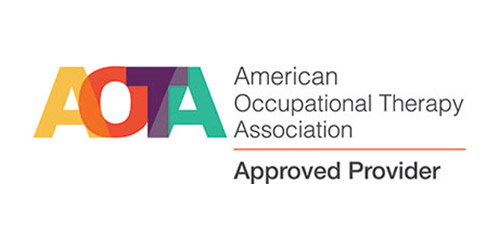
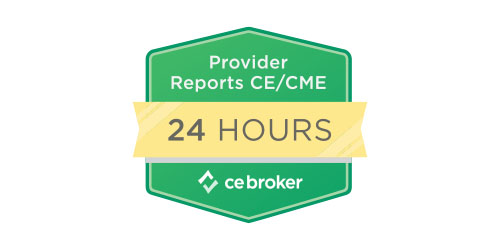
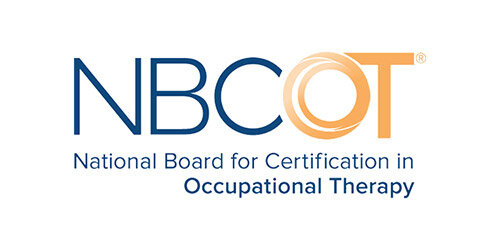
See our other OT courses!
Brain Computer Interfaces and OT with Lauren Souders • OT Potential
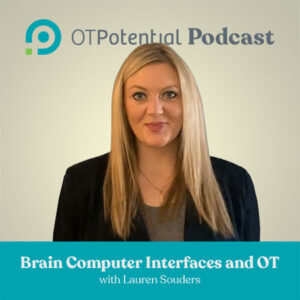
Today we’ll be covering “Brain-computer interface (BCI) and OT.” We’ll look at new research and discuss it with Lauren Souders.
Course Provider: Organization
Course Provider Name: OT Potential
Course Provider URL: https://otpotential.com/
Course Mode: Online
Start Date: 2021-08-23
Duration: 01:00:00
Course Type: Subscription
4.96

